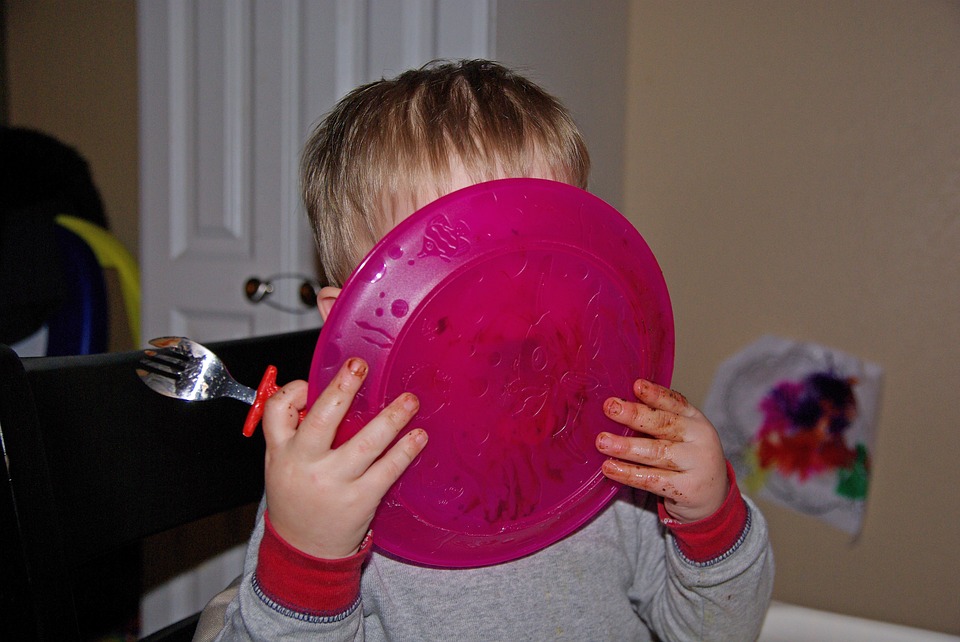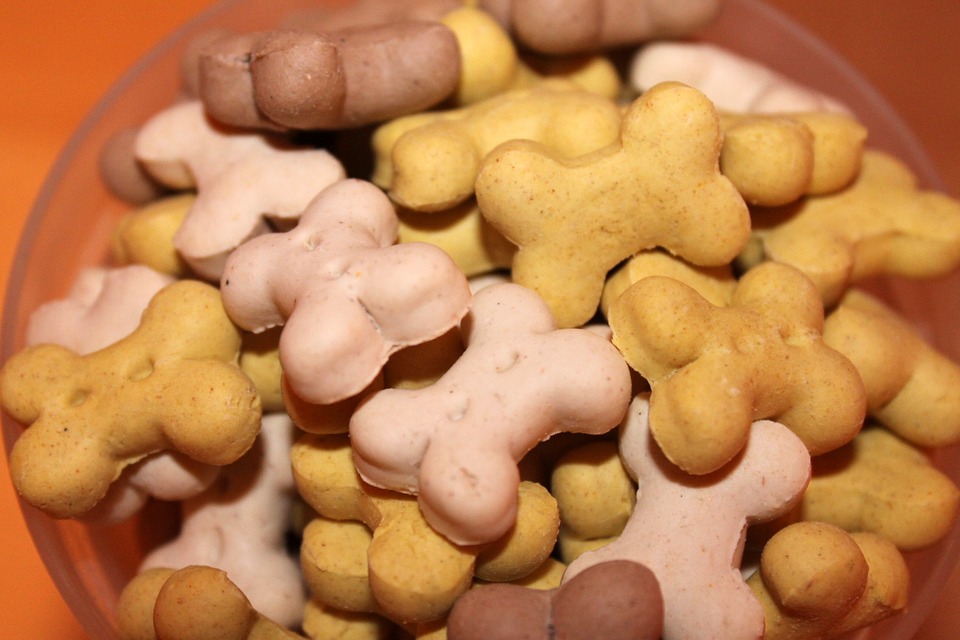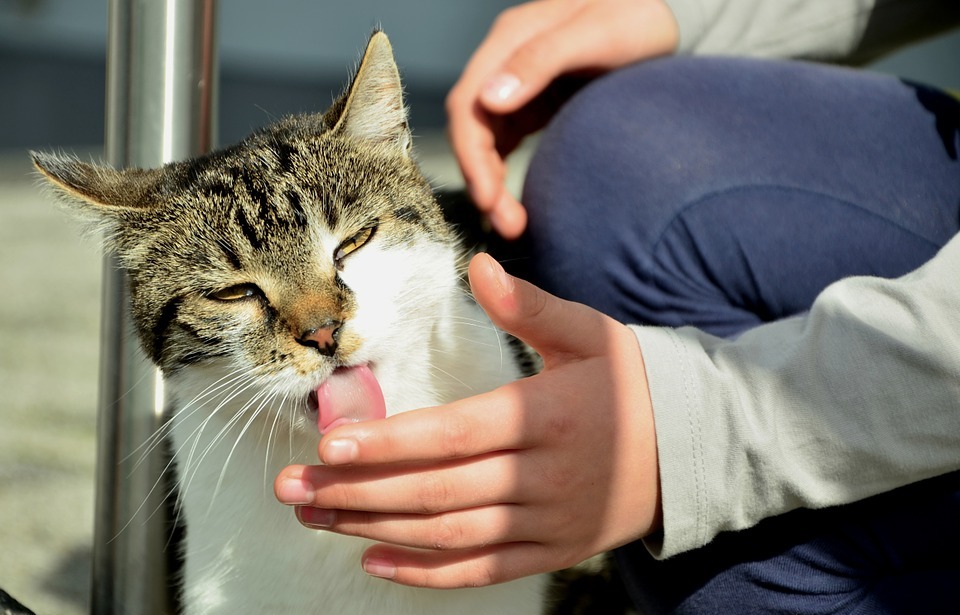You're lounging on the sofa, lost in a good book, when a furry whirlwind of love and slobber suddenly appears in your face. You haven't been snacking on anything particularly delicious, and you definitely haven't offered a treat, so why the sudden, enthusiastic tongue bath? As a dog owner, I've always been puzzled by this canine quirk. It's both endearing and occasionally a bit gross, but it's a constant reminder of the strong bond we share with our furry companions. So, I decided to dive into the world of canine licking and uncover the real reasons behind this seemingly simple act.
(Part 1) The Science of Canine Licking: More Than Just a Wet Kiss

Let's start by understanding the biological basis of licking. Dogs, like many other mammals, possess a natural instinct to lick. It's a behaviour deeply rooted in their evolutionary history. For our canine ancestors, licking was crucial for survival. It helped them keep clean, groom their pups, and even prepare their food. Over time, this behaviour has become ingrained in their genes, making it a part of their social interactions, communication, and even their emotional expression.
The Importance of Self-Grooming
Dogs lick themselves for various reasons, all essential for their overall well-being. They are meticulous groomers, and licking is their primary tool:
- Hygiene: Licking keeps their fur clean and free of dirt, debris, and pesky parasites. It's a natural form of grooming that ensures their coat remains healthy and shiny.
- Cooling down: When dogs lick their paws and fur, they're essentially employing a cooling mechanism. Evaporation helps to lower their body temperature, especially on hot days. This is why you might see your dog licking their paws more frequently in warm weather.
- Relieving itchiness: Licking can provide relief from skin irritations and itching caused by allergies, fleas, or other skin conditions.
- Stress relief: Licking can be a self-soothing behaviour for dogs, helping them to manage anxiety or stress.
Think of it this way: licking is their own personal spa treatment, a natural way to keep themselves clean and comfortable.
(Part 2) The Social Side of Licking: More Than Just a Greeting

Now, let's explore the social aspects of licking. While essential for hygiene and self-care, licking also plays a crucial role in canine communication and social bonding. It's how they express a range of emotions and establish their place within the pack.
Licking as a Greeting: A Warm Welcome
How many times have you walked through the door to be greeted by a flurry of wagging tails and enthusiastic licks? It’s a dog's way of saying “hello” and demonstrating affection. They may lick your face, hands, or even your shoes as a sign of recognition and to establish a connection with you. It's their way of saying, "I'm so happy to see you!"
Licking as a Sign of Submission: Showing Respect
Have you ever noticed how puppies lick their mothers? It's a way of showing deference and acknowledging their dominance. This same behaviour can be seen in adult dogs, especially when they're interacting with other dogs. It's a sign of submission, often used to appease a dominant individual or avoid conflict. Think of it as a way of saying, "I respect you, and I'm not a threat."
Licking as a Bonding Ritual: Strengthening the Pack
Licking plays a vital role in forming strong bonds between dogs and their owners. When your dog licks you, it's a way of showing you that they trust and care for you. It’s a way of strengthening the pack bond, reinforcing their connection with their humans, and establishing a sense of belonging.
It's essentially a way of saying, "You're part of my family, and I'm happy to be with you."
(Part 3) The Emotional Landscape of Licking: More Than Just a Physical Act

Licking isn’t just a physical act; it’s also deeply rooted in a dog’s emotional landscape. They use licking to express a range of emotions, from affection and excitement to anxiety and even guilt.
The Joyful Lick: A Celebration of Your Return
We’ve all been there. You come home after a long day, and your dog greets you with the most enthusiastic, slobbery lick imaginable. It’s a pure expression of joy, a celebration of your return, and a reminder of their unwavering love for you. It's their way of saying, "I'm so happy you're home!"
The Guilt-Laden Lick: A Sorry Attempt to Make Amends
Have you ever felt that guilty look from your dog after they've chewed on something they shouldn't have? The guilt-laden lick is often accompanied by a downtrodden expression and a tail tucked between their legs. It’s their way of trying to appease you and make amends for their misdeeds.
Even though they might not fully understand why they're in trouble, they're trying to express their regret.
The Anxiety Lick: A Way to Cope with Stress
When dogs are feeling anxious or stressed, they may lick excessively. This could be a response to a loud noise, a new environment, or even the presence of another dog. It’s their way of coping with the uncomfortable emotions and seeking comfort.
Think of it as their way of self-soothing, trying to find a sense of calm in a stressful situation.
(Part 4) Deciphering Your Dog's Licking Language: Reading the Signs
While licking can be a beautiful expression of love and affection, it's crucial to understand the nuances of this behaviour. It's not always a simple "I love you." Sometimes, it’s a sign of something else entirely.
The "I Love You" Lick: A Gentle Expression of Affection
This is the classic, gentle lick on the face, often accompanied by a wagging tail and a happy expression. This is a sign of pure, unconditional love and affection. It's a straightforward "I love you," delivered in a way only a dog can.
The "I Want Attention" Lick: A Demanding Request
This lick is often more insistent, sometimes even bordering on aggressive. It may be accompanied by pawing at you or jumping up on you. It’s their way of saying "Hey, pay attention to me!" Think of it as a playful but persistent, "Notice me, notice me!"
The "I'm Nervous" Lick: A Sign of Unease
This lick is often quick, repetitive, and accompanied by other signs of anxiety like panting or trembling. It’s a way of self-soothing and trying to cope with a stressful situation.
This is their way of saying, "I'm feeling a little uneasy," and they're trying to find a way to calm down.
The "I'm Sorry" Lick: A Sheepish Attempt to Make Amends
This lick is often followed by a sheepish expression and a tail tucked between the legs. It’s their way of apologizing for a transgression, even if they don’t fully understand why they’re being reprimanded.
This is their way of saying, "I'm sorry, I didn't mean to do that," even if they don't understand why they're in trouble.
(Part 5) The Art of Responding to Licking: Respectful Communication
Now that you have a better understanding of why dogs lick, it's time to think about how to respond to their licking. After all, they’re trying to communicate with you, and it's important to acknowledge their efforts.
Positive Reinforcement: Encouraging Desirable Behaviours
If your dog licks you in a gentle, affectionate way, it’s perfectly fine to respond with a gentle pat or a kind word. Positive reinforcement helps to strengthen the bond between you and your dog and encourages them to continue exhibiting this endearing behaviour.
Setting Boundaries: Protecting Yourself and Your Dog
However, if your dog's licking is excessive or becomes aggressive, it's important to set boundaries. Avoid rewarding the behaviour by pushing them away gently or saying “no.” If the licking becomes a problem, consider consulting with a veterinarian or a dog trainer for guidance.
Redirecting the Behaviour: Offering Alternative Activities
If your dog is licking you for attention, try redirecting their energy towards a toy or a game. This helps to satisfy their need for stimulation and encourages them to focus on other behaviours.
(Part 6) Licking: A Sign of Health or a Sign of Distress?
While licking is usually a normal and endearing behaviour, sometimes it can be a sign of a underlying health issue. It's important to pay attention to any changes in your dog’s licking habits, as they can offer clues about their physical and emotional well-being.
Excessive Licking: A Possible Sign of a Problem
If your dog is licking themselves excessively, it could be a sign of skin allergies, parasites, or other medical conditions. If you notice any changes in their skin, fur, or licking habits, it's crucial to consult with your veterinarian for a diagnosis and treatment plan.
Compulsive Licking: A Potential Sign of Deeper Issues
In some cases, dogs may develop compulsive licking behaviours. This can be a sign of anxiety, stress, or even a neurological disorder. If you suspect your dog may have a compulsive licking problem, it's essential to seek professional help from a veterinarian or a certified animal behaviourist.
If you notice any changes in your dog's licking behaviour, it's always a good idea to consult with a vet to rule out any health concerns.
(Part 7) Understanding the Psychology of Licking: More Than Just an Instinct
It’s fascinating to delve into the psychological underpinnings of canine licking. It’s not just a random act; it’s a behaviour that reveals a lot about their emotions, their bond with us, and their unique way of communicating.
The Power of Touch: A Universal Language of Love
Licking is a form of touch, and touch is a powerful communication tool for both humans and dogs. It releases oxytocin, the “love hormone,” which promotes feelings of bonding, trust, and relaxation. When your dog licks you, it’s their way of showing affection and strengthening the bond between you.
Think of it as a way of saying, "I feel close to you, and I enjoy being with you."
The Importance of Social Cues: Navigating the World
Dogs are highly social creatures, and they rely heavily on social cues to navigate their world. Licking is one of the ways they communicate their intentions and establish social hierarchies. It’s a way of saying “I’m friendly,” “I’m submissive,” or “I’m seeking your attention.”
This is how they figure out their place in the pack and how to interact with other dogs.
The Language of Love: A Unique Expression of Affection
Ultimately, licking is a language of love. It's a way for dogs to express their emotions, communicate their needs, and strengthen their bond with us. It’s a reminder that even the most simple of actions can carry deep meaning.
Licking is their unique way of saying, "I love you," and it's a beautiful reminder of the special connection we share with our canine companions.
(Part 8) Embracing the Slobbery Side of Love: A Celebration of the Bond
So, the next time your dog greets you with a slobbery lick on the face, don’t just endure it; embrace it. It’s a gesture of love, a testament to the special bond you share, and a reminder of the unique language of your canine companion.
It's a reminder of the love and devotion they have for you, expressed in a way that's uniquely canine.
FAQs
Here are some frequently asked questions about canine licking, along with their answers:
- Q: Is it okay for dogs to lick humans?
A: Generally, it’s perfectly fine for dogs to lick humans. It’s a natural behaviour and a way for them to express affection. However, if your dog’s licking is excessive or becomes aggressive, it’s important to consult with your veterinarian or a dog trainer to address the issue.
- Q: Why do dogs lick their lips when they’re anxious?
A: Dogs licking their lips when they’re anxious is a common calming signal. It’s a way for them to relieve stress and self-soothe. This behaviour is often accompanied by other calming signals, such as yawning, panting, or turning their head away.
- Q: Why do dogs lick their paws?
A: Dogs lick their paws for a variety of reasons, including hygiene, cooling down, and relieving itchiness. If you notice your dog licking their paws excessively, it’s important to consult with your veterinarian to rule out any underlying health conditions.
- Q: What if my dog is licking me excessively?
A: Excessive licking can be a sign of anxiety, stress, or a medical condition. If you notice your dog licking themselves or you excessively, it’s important to talk to your veterinarian. They can help to determine the underlying cause and suggest appropriate treatment options.
- Q: How can I discourage my dog from licking me?
A: To discourage licking, try gently redirecting your dog’s attention with a toy or a treat. Avoid rewarding the behaviour by pushing them away gently or saying “no.” If the licking becomes a problem, consider consulting with a veterinarian or a dog trainer.
Everyone is watching
-

Can Dogs Eat Bananas? A Guide to Safe Treats
DOGS & PUPPIESThis comprehensive guide will delve into the world of canine nutrition, focusing on the popular question: can ...
-

Can Dogs Eat Oranges? (Is It Safe or Toxic?)
DOGS & PUPPIESThis article delves into the question of whether dogs can safely consume oranges. We'll explore the nutrition...
-

Can Dogs Eat Grapes? The Shocking Truth About This Fruit
DOGS & PUPPIESThis article delves into the controversial topic of grapes and dogs, exploring the potential dangers associate...
-

Why Do Dogs Eat Poop? Understanding Coprophagia in Dogs
DOGS & PUPPIESThis article delves into the perplexing phenomenon of coprophagia, the act of eating faeces, in dogs. We explo...
-

Can Dogs Eat Shrimp? A Guide to Safety and Risks
DOGS & PUPPIESThis comprehensive guide dives into the world of shrimp and dogs, exploring the potential benefits and risks a...
